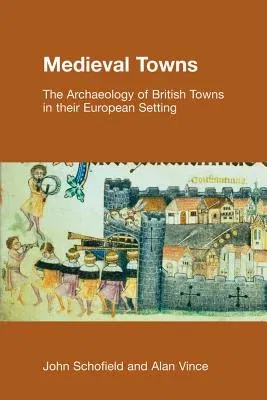Paul Schofield
(Author)Medieval Towns: The Archaeology of British Towns in their European SettingPaperback, 6 October 2016

Qty
1
Turbo
Ships in 2 - 3 days
In Stock
Free Delivery
Cash on Delivery
15 Days
Free Returns
Secure Checkout

Part of Series
Studies in the Archaeology of Medieval Europe
Print Length
352 pages
Language
English
Publisher
Equinox Publishing (UK)
Date Published
6 Oct 2016
ISBN-10
1845530381
ISBN-13
9781845530389
Description
Product Details
Authors:
Book Format:
Paperback
Country of Origin:
GB
Date Published:
6 October 2016
Dimensions:
24.33 x
17.12 x
1.93 cm
ISBN-10:
1845530381
ISBN-13:
9781845530389
Language:
English
Location:
Sheffield
Pages:
352
Publisher:
Weight:
834.61 gm